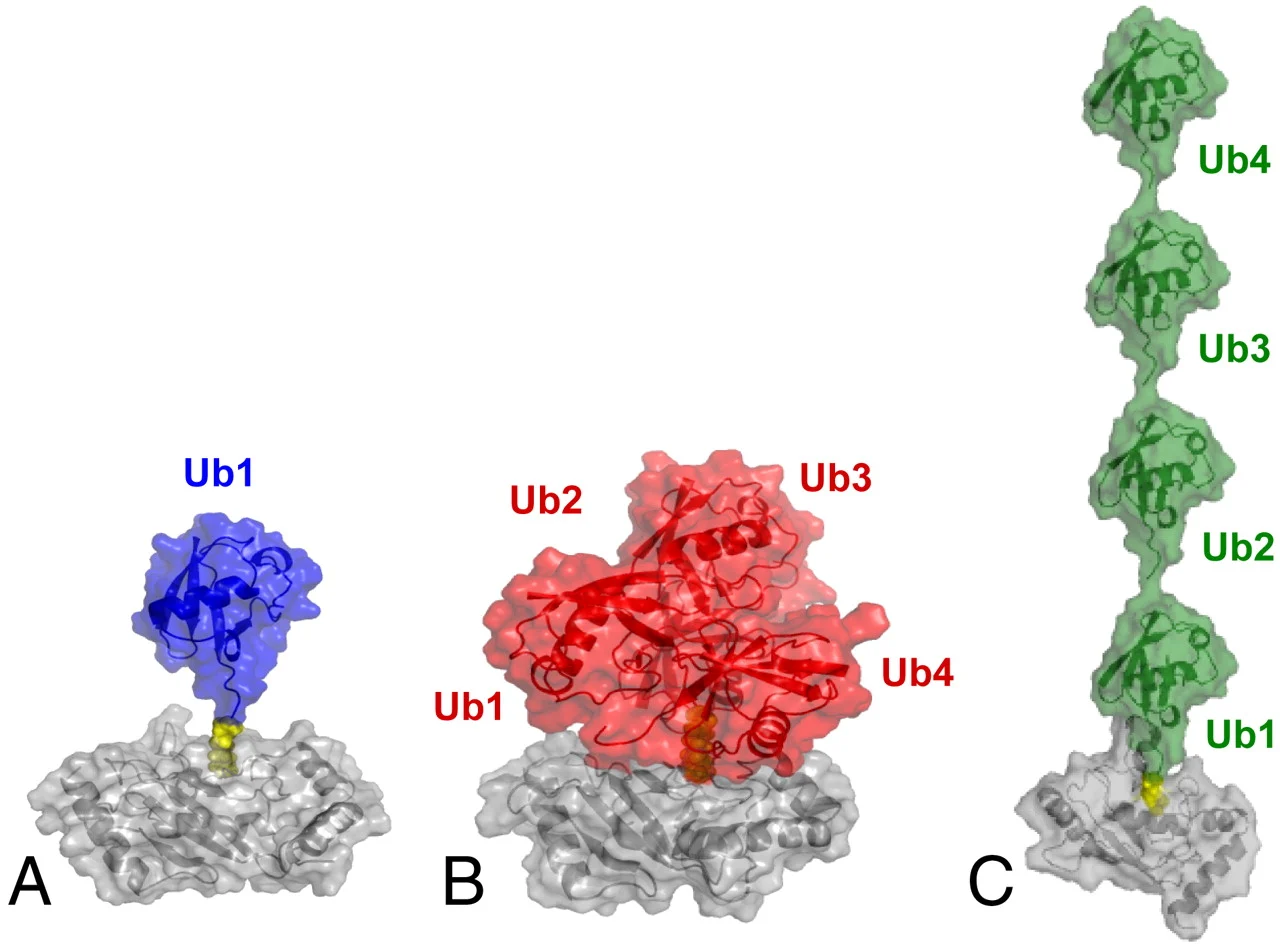
Ubiquitin tagging is a fascinating biological process that plays a crucial role in various cellular activities. It involves the attachment of small protein tags called ubiquitin to target proteins, marking them for specific cellular processes such as protein degradation, DNA repair, and cell signaling. While ubiquitin tagging is a well-studied topic, there are still several surprising and lesser-known facts that shed light on the complexity of this process.
In this article, we will explore 14 surprising facts about ubiquitin tagging that will expand your understanding of this essential biological mechanism. From the discovery of ubiquitin to its role in diseases and beyond, these facts will give you a deeper appreciation for the significance of ubiquitin tagging in cellular processes. So, let’s dive in and uncover the intriguing world of ubiquitin tagging.
Key Takeaways:
- Ubiquitin tagging is like putting a “recycle” sticker on proteins, telling the cell to break them down and make new ones. It’s like a cleanup crew for the cell!
- Ubiquitin tagging is not just about cleaning up, it also helps proteins find their way around the cell and even helps in fighting off diseases. It’s like a multitasking superhero inside the cell!
Ubiquitin is a Small Protein
Ubiquitin is a small protein consisting of 76 amino acids that is found in all eukaryotic organisms. Its primary function is to mark proteins for degradation or to regulate their activity.
Ubiquitin Forms Chains
Ubiquitin can form chains by attaching to itself through internal lysine residues. These chains can vary in length and topology, giving rise to different cellular functions.
Ubiquitin Tagging Regulates Protein Degradation
Ubiquitin tagging acts as a flag on proteins, marking them for degradation by the proteasome, a large protein complex responsible for protein breakdown.
Ubiquitin Tags Determine Proteasomal Degradation Efficiency
The number and location of ubiquitin tags on a protein can influence its degradation efficiency by the proteasome. More tags generally lead to faster degradation.
Ubiquitin Tagging Controls Protein Turnover
Ubiquitin tagging is crucial for maintaining protein homeostasis in cells. It ensures the timely removal of damaged or unneeded proteins, allowing for the turnover of cellular components.
Ubiquitin can Signal Protein Localization
Ubiquitin tags can also dictate protein localization within the cell, guiding proteins to specific compartments or organelles.
Ubiquitin-Mediated Proteolysis is Essential for Cell Cycle Progression
The ubiquitin-proteasome system plays a vital role in cell cycle regulation by targeting key regulatory proteins for degradation at various stages of the cell cycle.
Ubiquitin Tagging Regulates DNA Repair
Ubiquitin-dependent processes are involved in DNA repair mechanisms, ensuring the maintenance of genomic integrity and protection against DNA damage.
Ubiquitin Tags can be Removed
Ubiquitin tags are not irreversible. Specialized enzymes called deubiquitinases can remove ubiquitin from tagged proteins, allowing for regulation and fine-tuning of protein function.
Ubiquitin Tagging and Protein Trafficking
Ubiquitin tagging is intricately involved in protein trafficking. It can mark proteins for endocytosis, sorting them to different cellular compartments or targeting them for recycling.
Ubiquitin Signaling and Cellular Stress Response
During times of cellular stress, such as oxidative stress or heat shock, ubiquitin tagging plays a crucial role in activating protective responses and aiding in the restoration of cellular homeostasis.
Ubiquitin and Neurodegenerative Diseases
Malfunctions in the ubiquitin-proteasome system have been implicated in various neurodegenerative diseases, including Parkinson’s and Alzheimer’s, highlighting the importance of ubiquitin tagging in maintaining neuronal health.
Ubiquitin and Immune Response
Ubiquitin has essential roles in immune response regulation. It can control the activation and signaling of immune cells, influencing the outcome of immune reactions.
Ubiquitin Tagging and Protein Quality Control
Ubiquitin tagging is an integral part of protein quality control mechanisms, ensuring that misfolded or damaged proteins are recognized, targeted for degradation, and prevented from causing cellular harm.
These 14 surprising facts about ubiquitin tagging demonstrate its diverse and vital functions within the cell. This intricate process not only regulates protein degradation but also influences cellular signaling, protein turnover, and various biological pathways. Understanding the mechanisms and implications of ubiquitin tagging provides valuable insights into the complexities of cellular processes and opens new avenues for therapeutic interventions in diseases related to protein dysregulation and malfunction.
Conclusion
In conclusion, ubiquitin tagging is a fascinating biological process that plays a crucial role in various cellular functions. Through the addition of ubiquitin molecules to target proteins, it regulates protein degradation, signal transduction pathways, DNA repair, and protein trafficking. The 14 surprising facts mentioned in this article shed light on the complexity and significance of ubiquitin tagging.From its discovery as a small protein modifier to its involvement in diseases such as cancer and neurodegenerative disorders, ubiquitin tagging continues to captivate the attention of scientists worldwide. Understanding the intricate mechanisms of ubiquitin tagging opens up new avenues for therapeutic interventions and drug development.As we delve deeper into the mysteries of ubiquitin tagging, we can expect to uncover even more surprising facts that will revolutionize our understanding of cellular processes. The field of ubiquitin research is ever-evolving, and with each new discovery, we inch closer to unraveling the intricate web of protein regulation in the human body.
FAQs
Q: What is ubiquitin tagging?
A: Ubiquitin tagging is a process in which ubiquitin molecules are added to target proteins, marking them for various cellular functions such as protein degradation, signal transduction, and protein trafficking.
Q: How is ubiquitin tagging involved in protein degradation?
A: Ubiquitin tagging acts as a signal for the cell’s machinery to recognize and degrade proteins. Proteins marked with multiple ubiquitin molecules are recognized by the proteasome, a complex protein-degrading machine, leading to their breakdown.
Q: Can ubiquitin tagging affect protein function?
A: Yes, ubiquitin tagging can alter protein function. Depending on the type and location of the ubiquitin tags, proteins can be targeted for degradation, signal transduction, or protein-protein interactions, thereby influencing their activity and localization.
Q: Are there specific enzymes involved in adding ubiquitin tags?
A: Yes, a group of enzymes called E3 ligases are responsible for catalyzing the addition of ubiquitin molecules to target proteins. These ligases selectively recognize specific proteins and facilitate the attachment of ubiquitin molecules.
Q: Can ubiquitin tagging have implications in disease?
A: Yes, dysregulation of ubiquitin tagging has been implicated in various diseases, including cancer, neurodegenerative disorders, and inflammatory conditions. Understanding these implications can help in the development of targeted therapies.
Ubiquitin tagging's role in cellular processes is truly fascinating. If you enjoyed learning about this small but mighty protein, you might also be interested in exploring the groundbreaking work of Dr. Aaron Ciechanover, a pioneer in the field of protein degradation. Additionally, ubiquitin is just one of many post-translational modifications that shape protein function and fate. Finally, don't miss our article on the proteasome, the cellular machinery responsible for breaking down ubiquitin-tagged proteins. Each of these topics offers a unique perspective on the intricate world of protein regulation and cellular homeostasis.
Was this page helpful?
Our commitment to delivering trustworthy and engaging content is at the heart of what we do. Each fact on our site is contributed by real users like you, bringing a wealth of diverse insights and information. To ensure the highest standards of accuracy and reliability, our dedicated editors meticulously review each submission. This process guarantees that the facts we share are not only fascinating but also credible. Trust in our commitment to quality and authenticity as you explore and learn with us.


